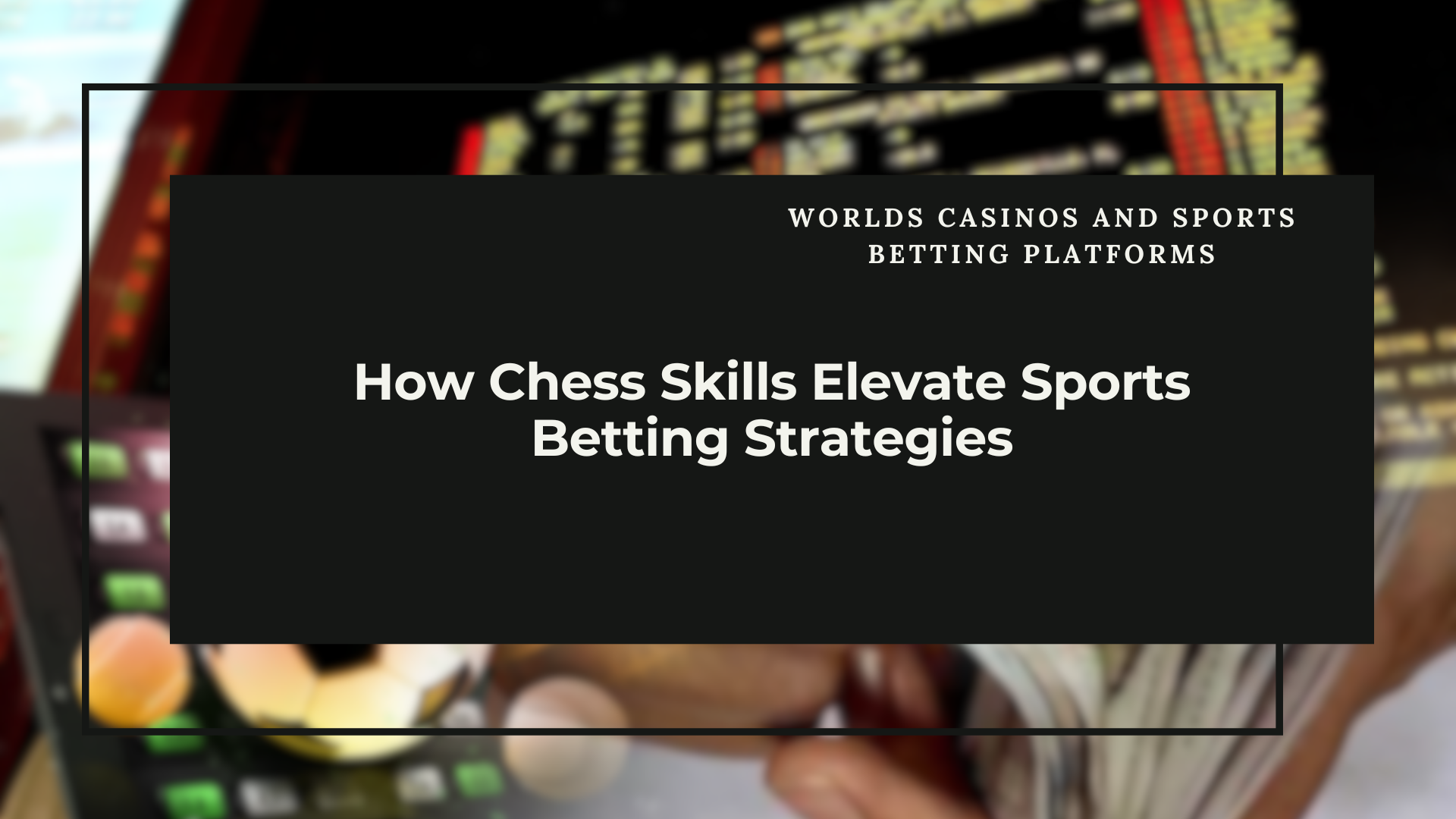At first sight, chess and sports betting might appear as unrelated activities. Yet, the cognitive skills used in chess can also help in sports betting. Let’s compare these activities side by side to findl the overlaps.
| Skill/Quality | Chess | Sports Betting |
| Strategic Planning | Think several moves ahead to predict opponent’s strategy. | Plan bets based on teams’ form, players’ conditions, and other factors. |
| Pattern Recognition | Recognize game patterns and remember past moves. | Recognize patterns in team’s play or a player’s performance. |
| Emotional Control | Maintain composure and avoid frustration. | Stay calm and avoid chasing losses for long-term success. |
| Risk Management | Decide when to attack, defend, or sacrifice a piece. | Determine stake amounts, when to place a bet, or when to refrain. |
| Continuous Learning | Regularly study, practice, and adapt to new strategies. | Continually research and adjust to shifting odds and team dynamics. |
So Are They Really Similar?

When one thinks of a strategic board game and the dynamic realm of sports betting, the similarities might not be immediately evident. However, a closer inspection reveals that the two fields share more common ground than meets the eye. Chess, a game steeped in strategy, calculation, and mental fortitude, offers insights into the intricacies of making successful sports bets. This section delves deep into the overlapping traits of both arenas.
- Strategic Planning: In chess, every move is a culmination of foresight, understanding the opponent’s tendencies, and predicting potential responses. A player might strategize several moves ahead, weighing the outcomes and adjusting based on the opponent’s actions. Similarly, in sports betting, a bettor doesn’t just rely on the present state of the game. They take into account the historical performance of the teams, the condition of key players, upcoming fixtures, and even variables like weather conditions. Like a chess player strategizing on the board, a sports bettor strategically plans where to place their money to maximize potential returns;
- Pattern Recognition: Chess masters have an uncanny ability to recognize patterns on the board. Through countless hours of practice, they become adept at noticing configurations of pieces that signify specific strategies or tactics. This recognition helps them anticipate and counter their opponent’s moves efficiently. In the domain of sports betting, recognizing patterns is equally crucial. An experienced bettor might detect patterns in a team’s offensive or defensive tactics, or how a tennis player performs on clay versus grass courts. This knack for pattern recognition allows bettors to make more informed decisions;
- Emotional Control: Chess is as much a game of emotional endurance as it is of strategic prowess. Players must remain undeterred by their opponent’s moves, keeping a clear head to avoid blunders. Succumbing to frustration or impatience can lead to fatal mistakes. The world of sports betting demands a similar emotional steadiness. Here, the stakes are monetary, and the urge to chase losses or become overly confident after wins can be overwhelming. Just as a chess player learns to detach emotionally from the immediate state of the board, a successful bettor learns to detach from short-term gains or losses, focusing instead on the longer game;
- Risk Management: The decision to sacrifice a queen for a potential checkmate or to leave a flank exposed to strengthen another are examples of risk management in chess. Players constantly weigh the potential rewards against the risks. Sports betting is fraught with similar decisions. Should one bet a large sum on a ‘safe’ bet with low returns or risk a smaller amount on a high-reward outcome? Like in chess, effective risk management can be the difference between a significant victory and a crushing defeat in sports betting;
- Continuous Learning: The world of chess is dynamic, with new openings, tactics, and endgame strategies being developed regularly. Players at the top of their game invest hours in studying these developments to stay competitive. This dedication to continuous learning mirrors the sports betting world. With teams evolving, players transferring, and game dynamics shifting, bettors who regularly update their knowledge and adapt their strategies are more likely to succeed. Both fields reward those who are committed to learning and evolving.
How to make money playing chess at a professional level, read more at this link.
How Chess Strategies Shape Betting Success?

Chess and sports betting might seem very different at first. But the skills used in chess can help in sports betting. Let’s see how chess players might have an edge in betting.
- Developed Critical Thinking: Chess is not merely a game of moving pieces; it’s a rigorous exercise in critical thinking. Every move requires deep analysis, weighing multiple outcomes, and foreseeing potential counter-moves. This honed ability to think critically is invaluable in sports betting, where bettors must analyze myriad factors before placing a bet;
- Patience: In chess, rushing decisions often lead to mistakes. Players develop a sense of patience, waiting for the right moment to execute their strategy. Similarly, in sports betting, it’s not always the frequent bets that pay off but the well-thought-out ones. A chess player’s cultivated patience could deter them from hasty, ill-advised bets;
- Objective Decision Making: Chess teaches players to be objective, basing decisions on the present state of the board rather than wishful thinking. They evaluate real threats and opportunities instead of getting swayed by emotions. This objectivity can be a significant asset in sports betting, where emotions, biases, and favorite teams can often cloud judgment;
- Handling Pressure: Chess often involves high-stakes situations where a single move can determine the game’s outcome. Professional players are used to this pressure. In the high-stakes world of sports betting, where real money is on the line, a chess player’s experience in handling tension can be invaluable;
- Adaptability: No two chess games are the same. Players often find themselves in unfamiliar situations and must adapt their strategies on the fly. This adaptability is crucial in sports betting too, where unexpected events – like a key player’s injury or a sudden change in weather – can dramatically alter the betting landscape;
- Long-term Vision: Chess players don’t just play for the next move; they play for the endgame. They understand that sometimes you must face short-term setbacks to achieve long-term victory. In sports betting, this translates to a vision that looks beyond immediate losses or gains, focusing on a sustained strategy for success over time;
- Research Skills: Top chess players spend countless hours studying their opponents, learning from previous matches, and preparing for various strategies. This research-oriented approach can be directly applied to sports betting, where understanding team dynamics, player histories, and past match outcomes can provide a decisive edge.
In conclusion, while the arenas of chess and sports betting are distinct, the skills and attributes cultivated by a professional chess player are directly transferable. Their analytical minds, patience, and strategic vision position them well to navigate the intricate world of sports betting.

